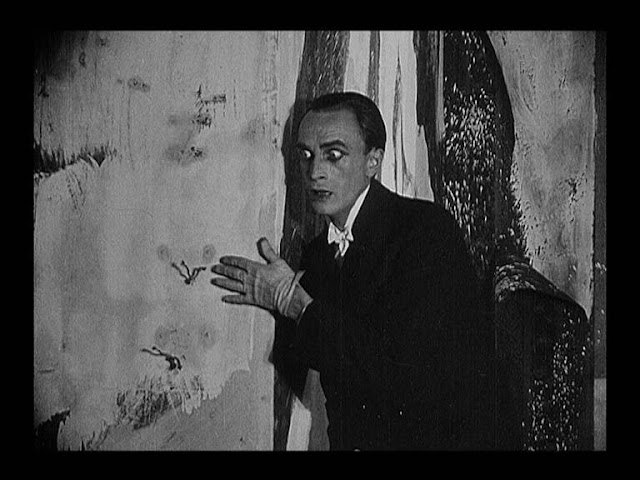Germany's Unheimliche Geschichte or Grausíge Nächte (Horrible Nights) is the earliest horror anthology; released in 1919 and containing five distinct stories with a sixth frame story. Three of the five stories were written by well known writers of the gothic: Edgar Allan Poe, Robert Louis Stevenson and Germany's own Anselma Heine. Director Richard Oswald provided a fourth story with "Der Spuk" (The Spectre). The fifth writer, Robert Liebmann was on the cusp of establishing himself as an important screenwriter in the country when he provided a story for the film; he would go on to be one of the most successful screenwriters of 1920's German cinema (he would later die at the age of just 52 in 1942 because he was Jewish). The most famous cast member (by far!) is Conrad Veidt, who not only appears as Death in the prologue, but also has roles in the individual stories themselves. The other two principle players appearing in all of the stories are Anita Berber and Reinhold Schünzel. The director himself makes a cameo in the prologue as well; in what would become a the norm for director cameos, he went uncredited.
.jpg) |
| The director in the middle with his two principle male players |
The film's original runtime was 112 minutes (or 1 hour 52 minutes), with DVD releases having it cut to 98 minutes. The five principal stories as follows:
The Apparition by Anselm Heine
The Hand by Robert Liebmann
The Black Cat by Edgar Allan Poe
The Suicide Club by Robert Louis Stevenson
The Spectre by Richard Oswald
The film goes by several different translated names in English, including: Eerie Tales, Five Sinister Stories, Weird Tales, Tales of Horror and Tales of the Uncanny. The film is not just a milestone as the very first horror anthology movie, it is also an oft over-looked early film of German expressionism. Though the direction style is not as outlandish as Murnau or Wiene, it is a very important work in the vein of gothic silent cinema in Germany, a great example of a work that gave ideas to the imagination of later films of Expressionism. Oswald would remake the film in 1932 with full sound as The Living Dead with Paul Wegener as the principle actor.
A Few Stills & GIFs











No comments:
Post a Comment